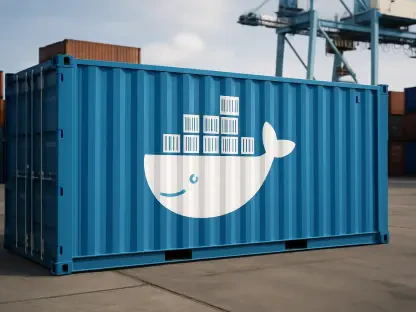In a notable turn of events within the competitive cloud computing landscape, Microsoft has reached a significant $22 million settlement with the Cloud Infrastructure Services Providers in Europe (CISPE) to address long-standing concerns related to anticompetitive practices. The antitrust complaint, which was originally filed in November 2022, alleged that Microsoft’s software licensing practices were unfairly hindering competition to the detriment of European cloud providers and their customers. This resolution, announced on July 11, 2024, brings attention to the regulatory pressures and strategic maneuvers that shape the industry, offering insights into the ongoing battle for supremacy among cloud giants like Microsoft, Google, and Amazon Web Services (AWS).
Background of the Antitrust Case
The central issue of the antitrust case revolves around accusations that Microsoft was using its dominant market position to create a less competitive environment in the European cloud services sector. By binding its business software more closely to its Azure cloud platform, Microsoft allegedly made it more difficult for customers to switch to alternative cloud providers. CISPE, a trade association representing European cloud infrastructure providers, filed the complaint with the intent of drawing regulatory attention to these practices. According to CISPE, Microsoft’s actions were significantly impairing innovation and limiting the choices available to consumers, making it imperative for regulatory bodies to step in and restore competitive balance.CISPE’s complaint specifically highlighted how Microsoft’s licensing terms favored its own Azure platform, creating a “lock-in” effect that discouraged customers from migrating to other cloud service providers. The trade association argued that this unfairly disadvantaged European companies in the cloud sector. It claimed that the software licensing terms were more favorable when the software was used with Azure, effectively penalizing customers who opted for third-party cloud solutions. CISPE contended that this created an unlevel playing field that stifled competition, prompting calls for regulatory intervention to ensure that consumers had access to a more diverse and innovative array of cloud services.
Allegations of Anticompetitive Practices
CISPE’s allegations against Microsoft were extensive, focusing on various aspects of the company’s cloud computing and software licensing strategies. One of the primary concerns was the integration of Microsoft business software with the Azure cloud platform, which CISPE argued created significant barriers to switching to alternative providers. This close integration was seen as a strategic maneuver to make it inconvenient and costly for customers to move away from Microsoft’s ecosystem. By doing so, Microsoft was accused of creating a “lock-in” effect that effectively curtailed competition and undermined the market positions of other cloud service providers in Europe.Another critical element of CISPE’s complaint was the disparity in software licensing terms. CISPE pointed out that Microsoft’s software licenses were more advantageous when applied to its own Azure platform rather than to third-party cloud services. This discrepancy posed a substantial disadvantage to customers who preferred to use non-Microsoft cloud solutions, further skewing the competitive landscape. By imposing less favorable terms on customers who chose to operate outside the Microsoft environment, the company was seen as leveraging its market dominance to suppress competition. CISPE contended that this approach not only reduced the competitiveness of European cloud providers but also limited consumer choices and hindered technological innovation.
Microsoft’s Settlement Agreement
In response to the mounting pressure and the potential for a protracted legal battle, Microsoft entered negotiations with CISPE to resolve the complaint. The discussions culminated in a settlement agreement that was made public on July 11, 2024. As part of the settlement, Microsoft agreed to a $22 million payout to CISPE members. This financial component was accompanied by several significant concessions aimed at addressing the competitive concerns raised in the original complaint. The settlement marks a substantial shift in Microsoft’s approach to its European operations, indicating a willingness to adapt in light of regulatory scrutiny.The terms of the settlement included commitments from Microsoft to enhance the capabilities of its Azure platform for CISPE members. These enhancements are designed to provide European cloud providers with a competitive edge, leveling the playing field in the cloud services market. Additionally, the agreement grants CISPE members the ability to offer Microsoft applications and services on their own cloud platforms. This move is seen as a way to reduce the monopolistic control Microsoft held over its software products, providing more flexibility and choice for customers in the European market. Overall, the settlement is viewed as a win for CISPE members, addressing several of the key issues that had been hampering their competitiveness.
Google and AWS Interventions
Amid the unfolding settlement negotiations between Microsoft and CISPE, other major players in the cloud computing industry, namely Google and AWS, sought to capitalize on the situation. Google’s intervention was particularly noteworthy; the company offered a substantial package worth $512 million to CISPE members, including $15 million in cash and $495 million in software licenses over five years. This generous offer was aimed at encouraging CISPE members to remain aligned against Microsoft, thereby maintaining the pressure on Microsoft’s anticompetitive practices. Google’s strategic move highlighted the high stakes involved in the competitive cloud services market and the lengths to which companies would go to secure favorable regulatory outcomes.AWS also participated in the effort to influence CISPE members, though with a more modest financial contribution of $6.5 million. The collective interventions by Google and AWS underscored the intense rivalry and the competitive strategies employed by these tech giants to sway market dynamics. Despite the lucrative offers presented by Google and AWS, CISPE members ultimately decided to accept Microsoft’s settlement. This decision was driven by the desire for regulatory relief and the operational benefits outlined in the settlement agreement, which were seen as more immediately advantageous than the financial incentives proposed by Google’s and AWS’s counteroffers.
Implications for the Cloud Market
In a significant development within the competitive cloud computing market, Microsoft has agreed to a substantial $22 million settlement with the Cloud Infrastructure Services Providers in Europe (CISPE). This settlement aims to address long-standing concerns over anticompetitive practices alleged by CISPE. The antitrust complaint, initially filed in November 2022, accused Microsoft of employing unfair software licensing practices that hindered competition, disadvantaging European cloud providers and their customers. The resolution, announced on July 11, 2024, highlights the regulatory pressures and strategic maneuvers shaping the industry. It offers crucial insights into the ongoing competition for dominance among cloud giants such as Microsoft, Google, and Amazon Web Services (AWS). This case underscores the escalating regulatory scrutiny that major tech companies face as they vie for market share in the burgeoning cloud computing sector, illustrating the complexities and challenges inherent in maintaining fair competitive practices.









